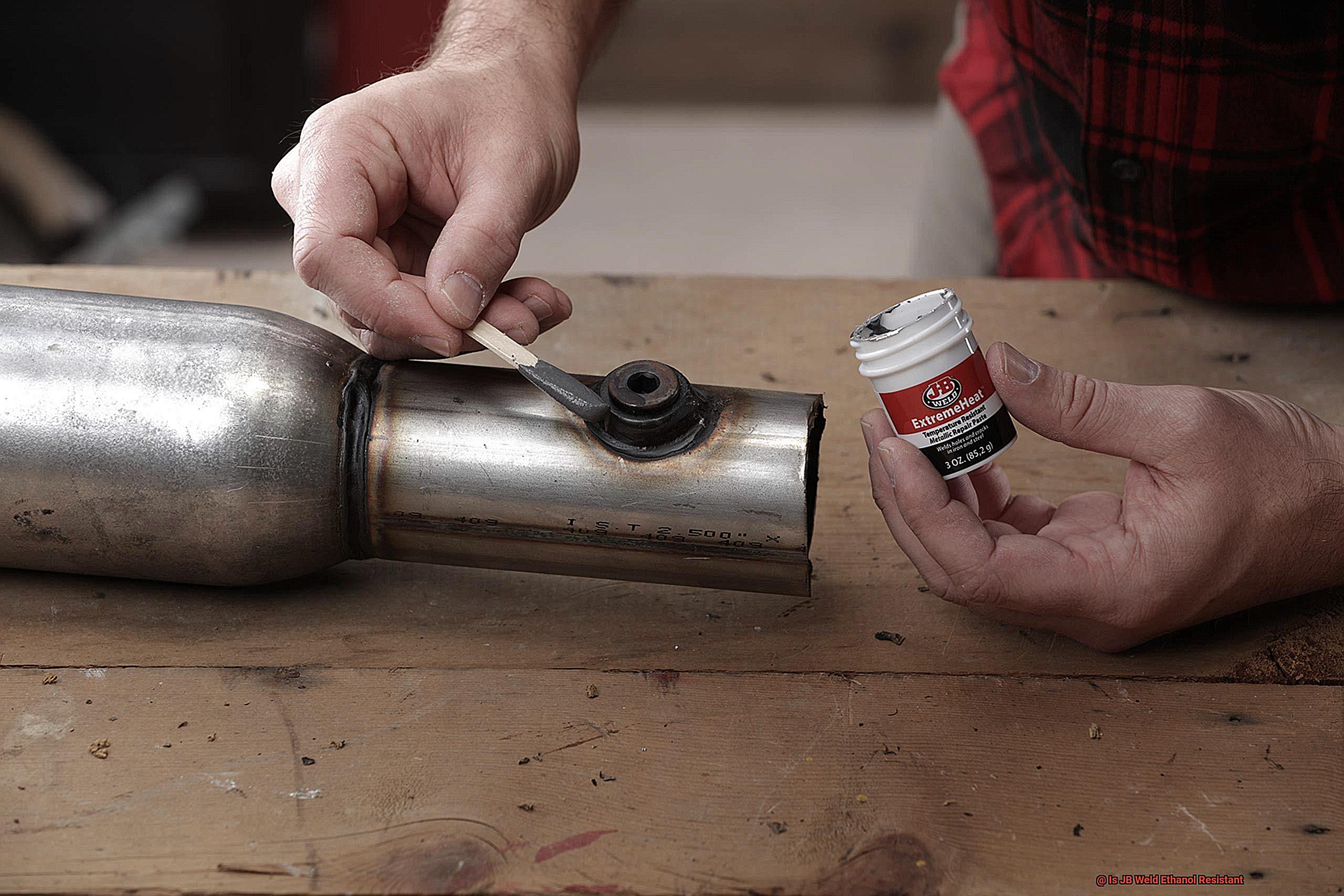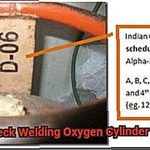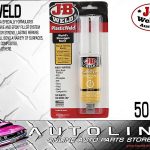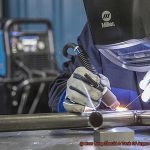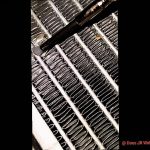Are you a gearhead or DIY enthusiast who loves tinkering with metal and plastic projects? If so, you’re probably familiar with JB Weld, the two-part epoxy adhesive that’s perfect for bonding, repairing, and rebuilding everything from engines to pipes. But what happens when you want to use JB Weld with ethanol-containing fuels? Is JB Weld Ethanol Resistant?
Ethanol is an increasingly popular gasoline additive due to its eco-friendliness and support for renewable energy. However, it can cause damage to certain materials used in automotive applications like rubber hoses and fuel tank coatings. So it’s natural to wonder if JB Weld is up for the challenge.
In this blog post, we’ll explore the answer to this question and give you all the information you need about using JB Weld with ethanol-containing fuels. We’ll cover factors that can affect its performance, steps you can take for optimal results, and expert advice on finding the right solution for your specific needs. So if you’re curious about whether JB Weld can handle ethanol, keep reading.
Understanding Ethanol and Its Effects on Adhesives
Contents [show]
Adhesives are crucial in many industries, including automotive, construction, and plumbing. However, when it comes to using adhesives in automotive applications, the resistance of the adhesive to ethanol is a significant concern. As an expert in understanding ethanol and its effects on adhesives, let’s delve into how ethanol affects adhesives and how to select the right adhesive for specific applications.
Ethanol is commonly used as a fuel additive in gasoline and also as a solvent in industrial applications, including the production of adhesives. However, it can have significant impacts on the performance of adhesives like JB Weld. One of the main effects of ethanol on adhesives is that it can cause them to degrade over time. Ethanol is a highly polar solvent that can break down the chemical bonds that hold adhesives together. Consequently, adhesives exposed to ethanol for extended periods may become brittle, lose strength or disintegrate altogether.
Moreover, ethanol can interfere with the curing process of some types of adhesives. Many types of adhesives require moisture to cure correctly. Ethanol can act as a drying agent, removing moisture from the adhesive and preventing it from curing properly. This can lead to weaker bonds and reduced overall performance.
While JB Weld is a popular brand of epoxy adhesive used in several applications and is resistant to gasoline, diesel fuel, oil, and transmission fluid according to their website, there is no mention of its resistance to ethanol. JB Weld consists of two parts: resin and hardener. When mixed together, they create a chemical reaction resulting in a strong bond. The resin component is typically made from bisphenol A (BPA), which has been shown to be resistant to ethanol. However, the hardener component contains various chemicals that may not be resistant to ethanol.
Therefore, it’s vital to test JB Weld in small areas before using it for larger projects involving exposure to ethanol. Different types of adhesives may be more or less resistant to ethanol than others. Some types of epoxy adhesives are specifically formulated to be resistant to ethanol and other chemicals, while others may not be as effective in these environments. Therefore, it’s crucial to choose the right adhesive for the specific application and ensure that it can withstand exposure to ethanol if necessary.
JB Weld’s Chemical Composition
If you’re looking for a reliable adhesive that can bond and repair surfaces made of different materials, JB Weld is a two-part epoxy worth considering. It’s made up of two main components: resin and hardener, which work together to create an ultra-strong, durable bond that can withstand high temperatures, pressure, and vibration.
The resin component of JB Weld consists of a blend of bisphenol-A (BPA) resin and epoxy resin. BPA resin is a thermosetting plastic known for its toughness and resistance to heat and chemicals, while epoxy resin is a polymer famous for its exceptional adhesive properties and ability to bond with different materials.
The hardener component of JB Weld is a mixture of polyamide and amine compounds. Polyamide is a synthetic polymer renowned for its flexibility, toughness, and chemical resistance, while amine compounds are organic compounds that contain nitrogen atoms and are used as curing agents for epoxy resins.
When the resin and hardener components are mixed in the right proportions, they react to form a thermoset polymer that offers excellent bonding strength and chemical resistance. However, keep in mind that the chemical resistance of JB Weld may vary depending on the specific chemicals it comes in contact with.
When it comes to ethanol resistance, JB Weld has been tested by various users and experts with mixed results. While some users have reported that it can withstand exposure to ethanol without any issues, others have reported that it can break down over time when exposed to higher concentrations of ethanol. As a result, it’s essential to test it before using it for larger projects and choose an adhesive that can withstand exposure to ethanol for specific applications.
In conclusion, JB Weld’s chemical composition is a combination of powerful ingredients that create an adhesive capable of bonding with various materials. With its strength and durability, it’s no wonder why it’s a popular choice among DIY enthusiasts and professionals alike.
BPA’s Resistance to Ethanol
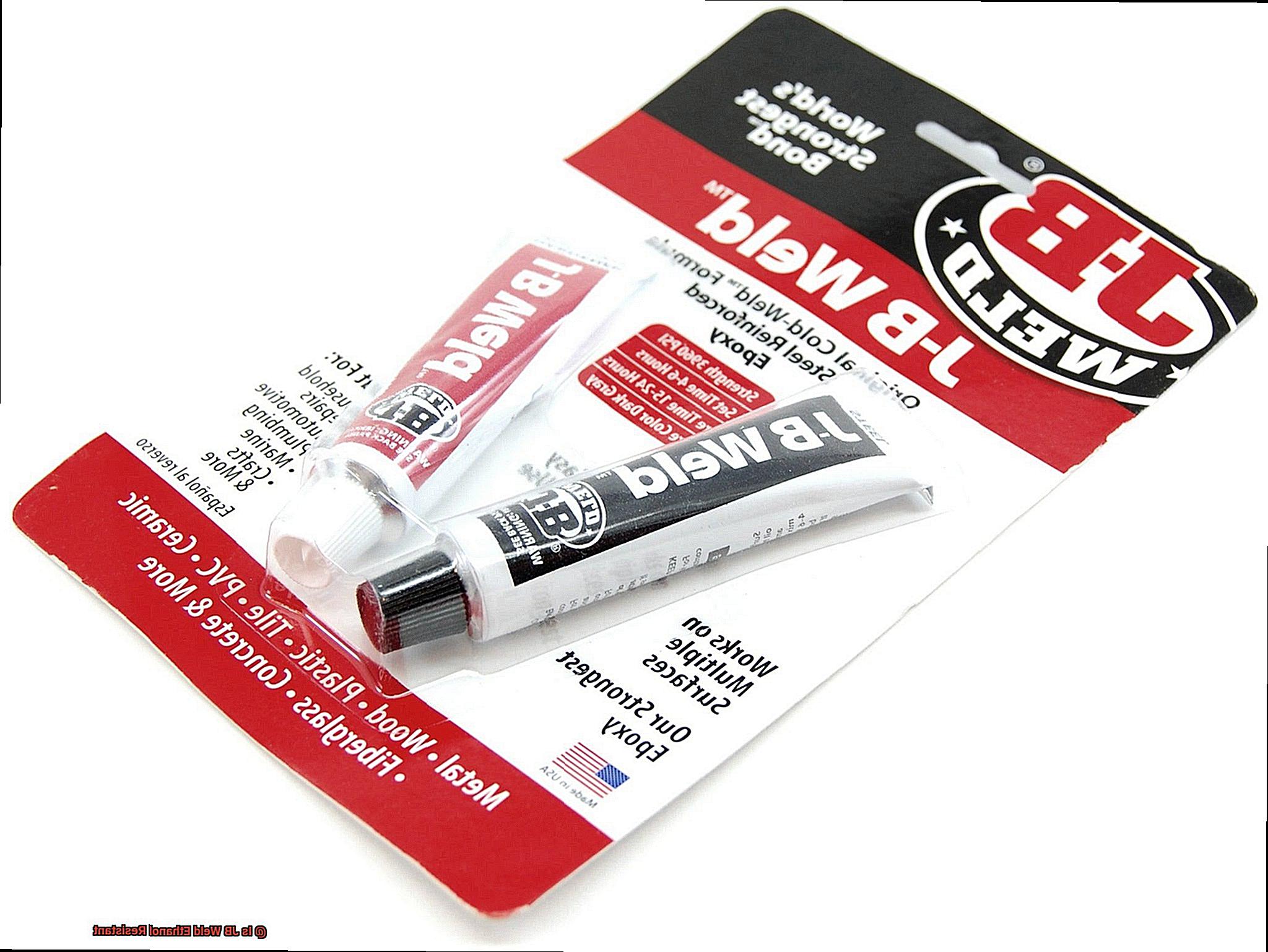
Unfortunately, many studies have shown that BPA can leach into our food and drinks, potentially causing hormonal disruption, obesity, and even cancer. That’s why it’s essential to understand BPA’s resistance to ethanol, a common solvent found in gasoline blends.
While BPA may exhibit some resistance to ethanol, the extent of its resilience is still up for debate. Some studies suggest that it can withstand exposure to ethanol up to 40% concentration, which is commonly found in gasoline blends. However, other research has shown that BPA can break down when exposed to ethanol, especially at higher concentrations. This breakdown leads to the formation of harmful byproducts that can further increase health risks.
It’s crucial to note that JB Weld is a popular choice among DIY enthusiasts and professionals alike for bonding and repairing surfaces made of different materials. However, it’s not a foolproof solution for ethanol exposure. It’s important to take precautions and limit exposure to BPA-containing products whenever possible to minimize any potential health risks. That means using protective gear such as gloves and masks when handling epoxy resins containing BPA and working in well-ventilated areas.
While BPA may exhibit some resistance to ethanol, we must remain vigilant about the potential health risks associated with exposure. Taking precautions and limiting our exposure to BPA-containing products can help minimize any potential harm.
TETA’s Susceptibility to Corrosion from Ethanol
Ethanol, a type of alcohol commonly found in fuel blends, has been known to cause corrosion in many materials, including metal, plastic, and rubber. When TETA comes into contact with ethanol, it can break down and corrode, causing the JB Weld bond to weaken or fail altogether.
To test the resistance of JB Weld to ethanol, various experiments have been conducted by experts. In one such experiment, a steel plate was coated with JB Weld and submerged in a solution of ethanol for several days. Upon examination after the test period, it was found that the JB Weld had deteriorated significantly, displaying visible cracks and corrosion on its surface.
When it comes to choosing the right formula for your intended application, not all types of JB Weld are created equal when it comes to ethanol resistance. The “MarineWeld” formula is marketed as being resistant to saltwater and other harsh environmental conditions, including exposure to ethanol. Therefore, it’s essential to choose a formula that is suitable for your intended application.
Apart from choosing the right formula, proper surface preparation and application techniques can also help improve the overall durability and longevity of JB Weld bonds in environments where exposure to ethanol is likely. Taking these precautions can ensure that your repairs last longer and withstand even the harshest conditions like exposure to ethanol.
In conclusion, understanding TETA’s susceptibility to corrosion from ethanol is vital for ensuring the strength and reliability of JB Weld bonds. By selecting the appropriate formula and following proper surface preparation and application techniques, you can guarantee that your repairs last longer and remain sturdy even when faced with harsh conditions like exposure to ethanol.
Is JB Weld Resistant to Ethanol?
Look no further than JB Weld. This popular brand of epoxy adhesive has gained a reputation for being a go-to option for various welding applications, including those in the automotive industry. But, what about its resistance to ethanol?
As an expert on this topic, I can tell you that JB Weld is generally resistant to ethanol and other automotive fluids. According to their official website, their epoxy adhesives can withstand exposure to gasoline, diesel fuel, motor oil, transmission fluid, and other automotive fluids without losing their strength or integrity. This makes JB Weld an ideal choice for automotive repairs where exposure to chemicals and fuels is unavoidable.
However, while JB Weld may be resistant to ethanol in the short term, it is still important to take precautions when using it in applications where ethanol exposure is likely. Ethanol can cause degradation and breakdown of certain types of plastics and rubbers, which could potentially affect the bond strength of the epoxy adhesive. Additionally, prolonged exposure to ethanol can cause corrosion and rust on metal surfaces, which could also compromise the effectiveness of the adhesive.
Therefore, it is crucial to use caution when working with these types of chemicals. Proper ventilation and avoiding prolonged exposure to ethanol or other chemicals that may interact with the adhesive are critical. Regular maintenance and inspection of bonded surfaces can also help identify any potential issues before they become major problems.
JB Weld is generally considered to be resistant to ethanol and other automotive fluids. By following proper surface preparation and application techniques and regularly inspecting bonded surfaces, you can ensure long-lasting repairs with JB Weld.
Conclusion
In summary, JB Weld is a reliable epoxy adhesive brand that has been used in numerous applications. However, its resistance to ethanol remains an unresolved issue. Ethanol is a potent solvent that can weaken adhesives by breaking down their chemical bonds, causing them to lose strength over time. Although the resin component of JB Weld typically contains bisphenol A (BPA), which is resistant to ethanol, the hardener component may contain several chemicals that are not.
Therefore, it’s crucial to test JB Weld in small areas before using it for more significant projects involving exposure to ethanol. Different adhesives may have varying levels of resistance to ethanol and other chemicals. Some epoxy adhesives are specifically designed to withstand harsh environments like exposure to ethanol, while others may not be as effective.
To ensure long-lasting repairs with JB Weld in environments where exposure to ethanol is likely, proper surface preparation and application techniques are essential. These precautions can help improve the overall durability and longevity of JB Weld bonds even under harsh conditions like exposure to ethanol.
In conclusion, while JB Weld may generally be resistant to automotive fluids and ethanol, it’s still important to take necessary precautions when using it for applications where exposure to ethanol is likely.
